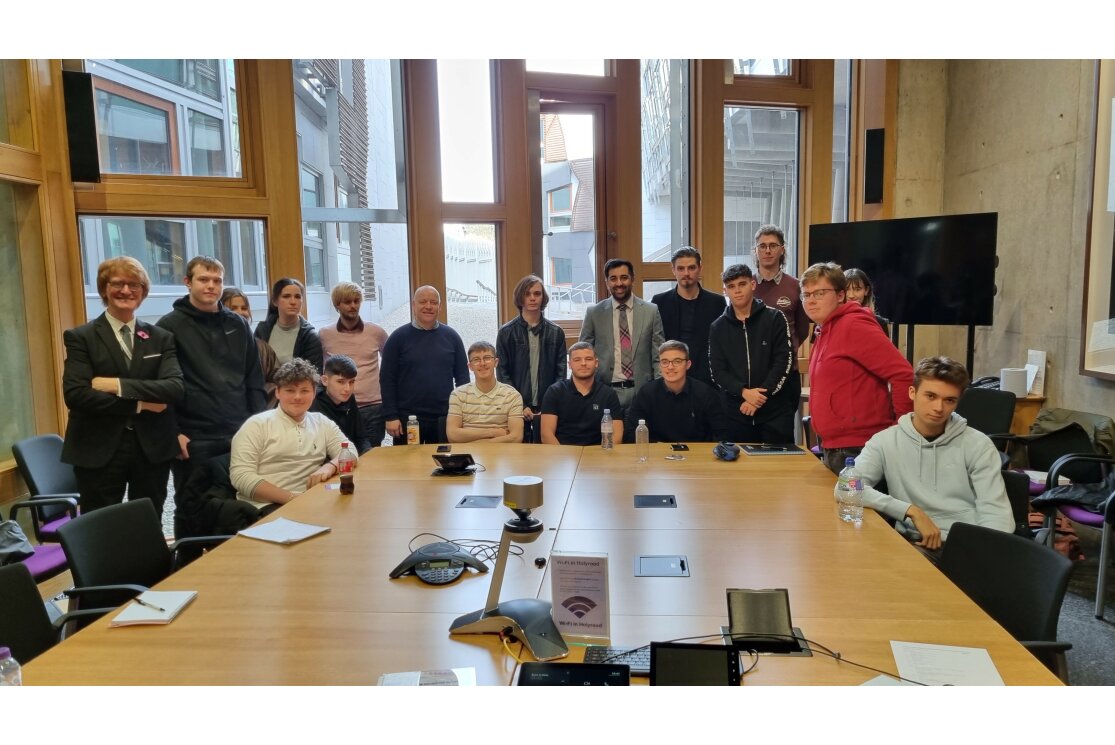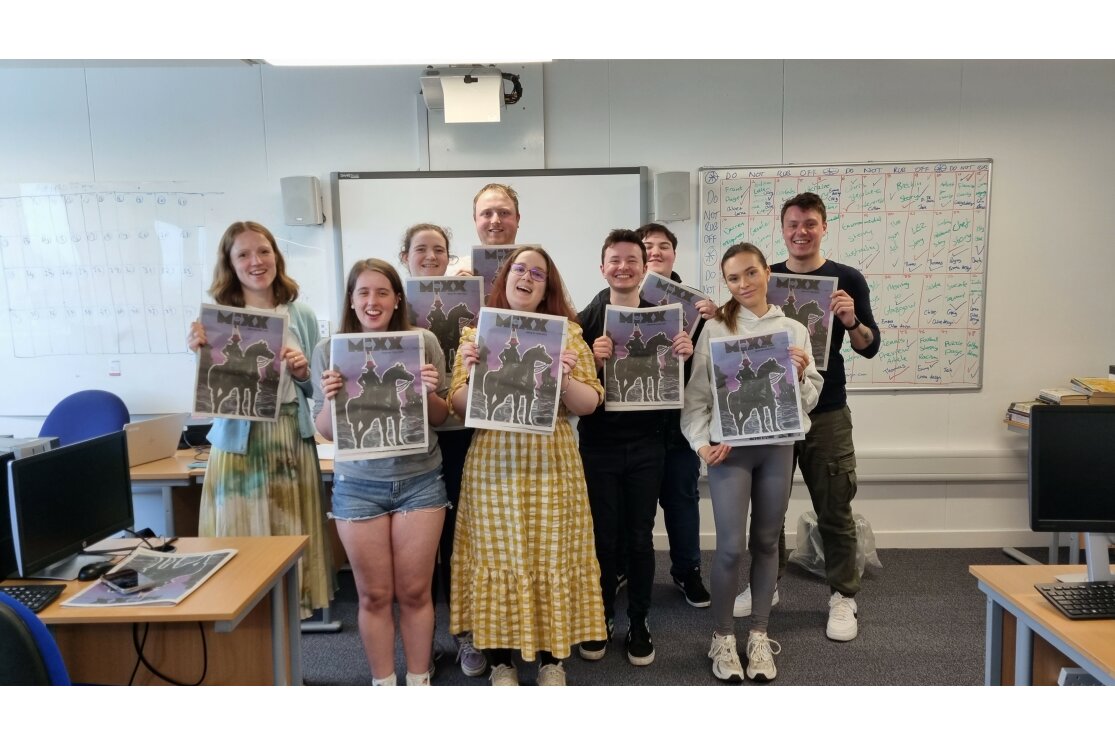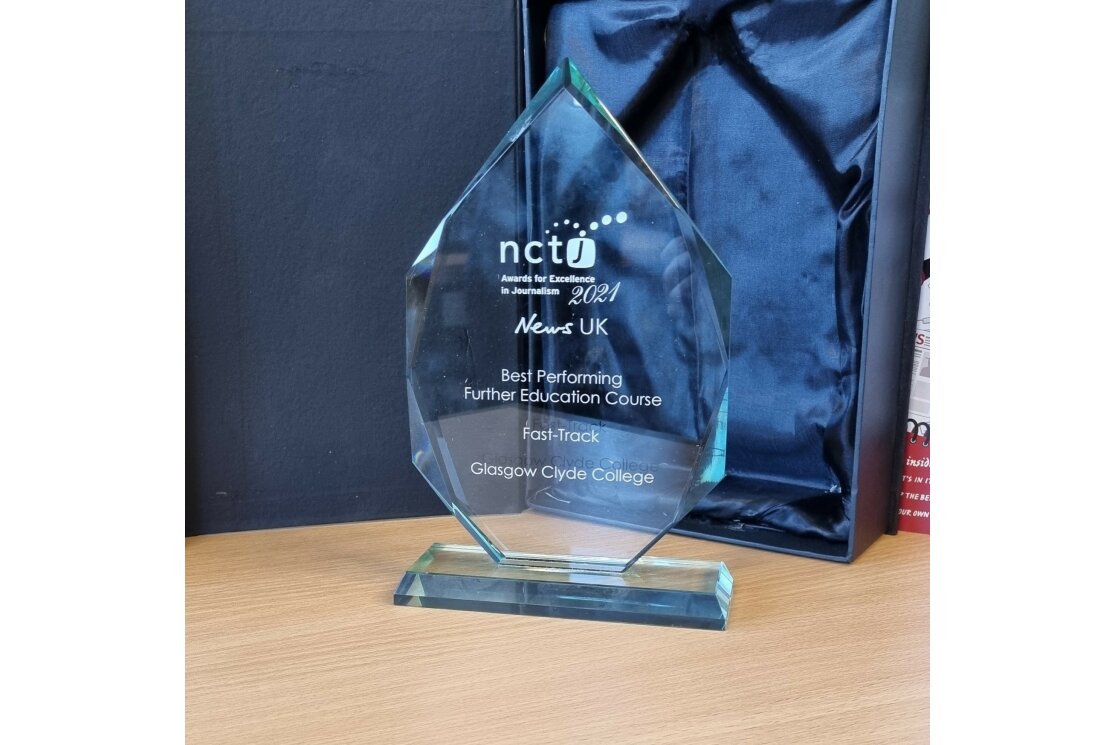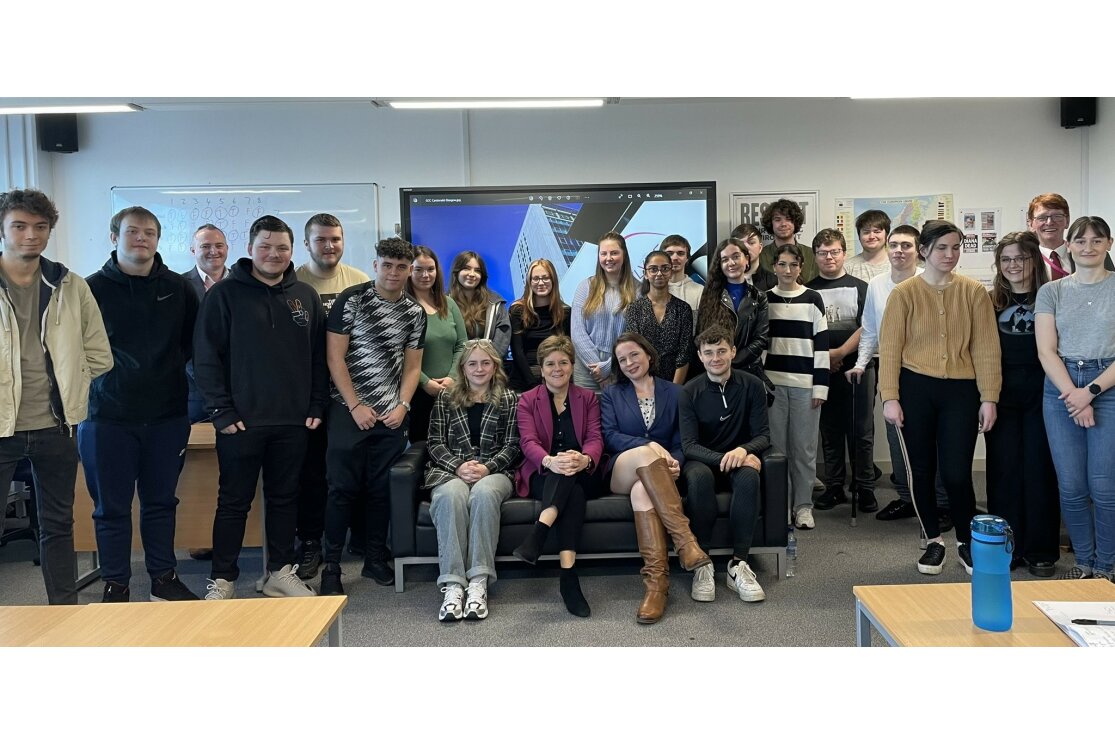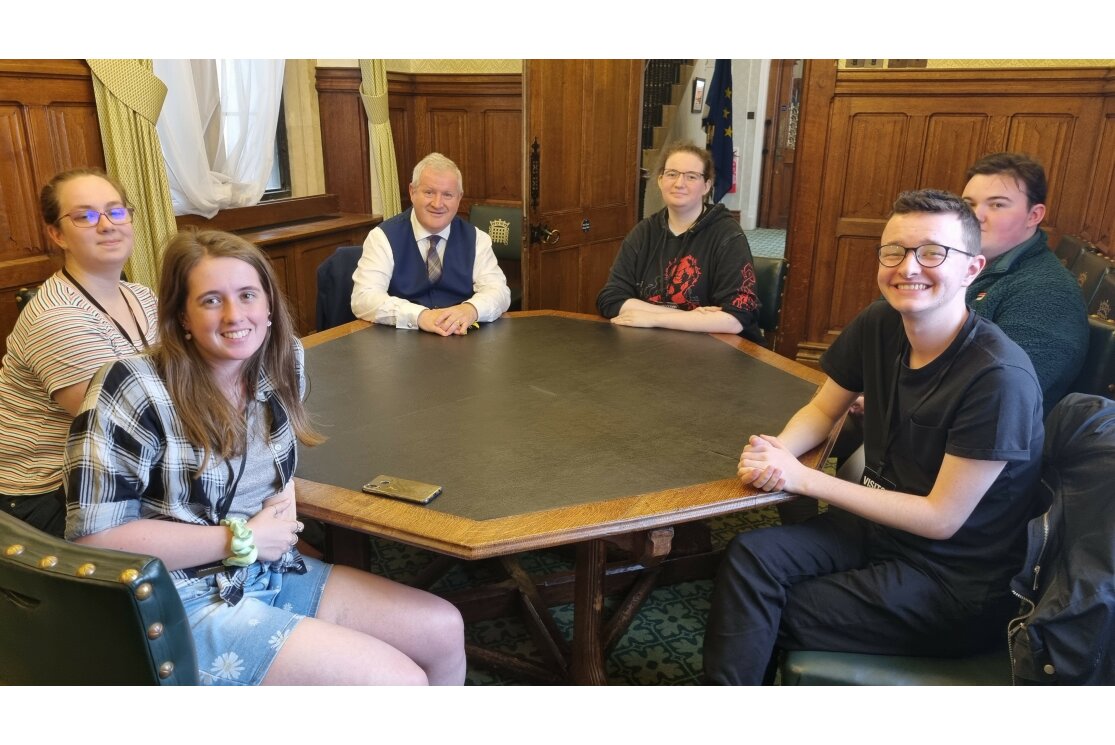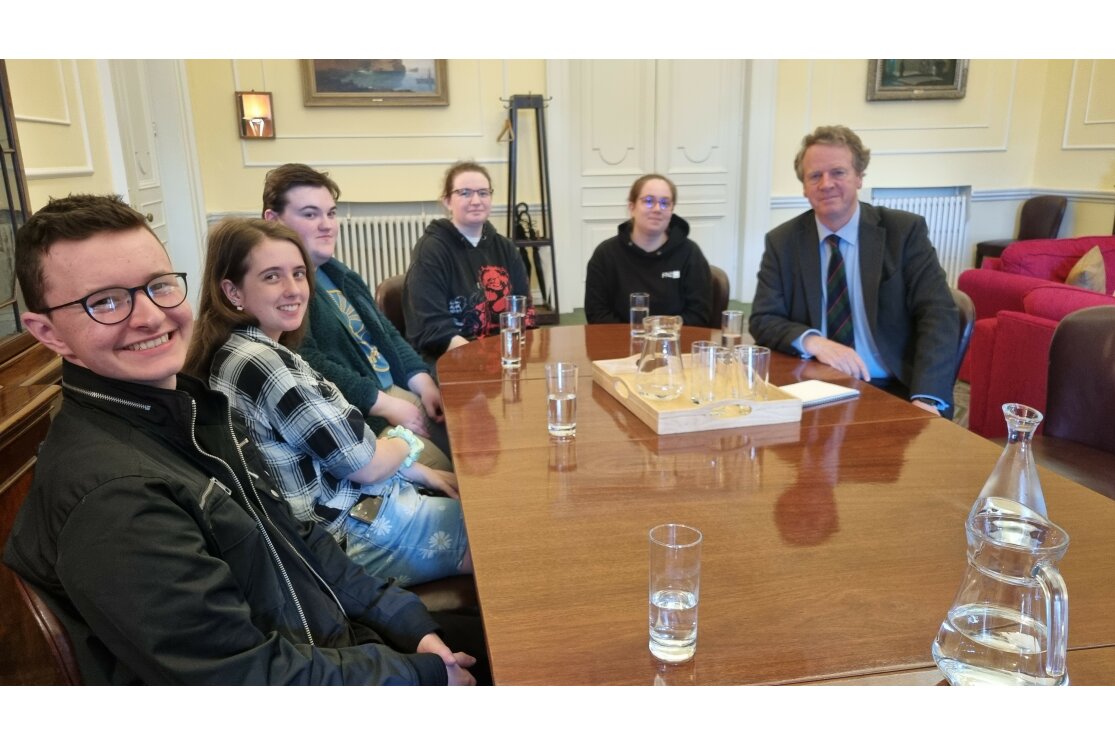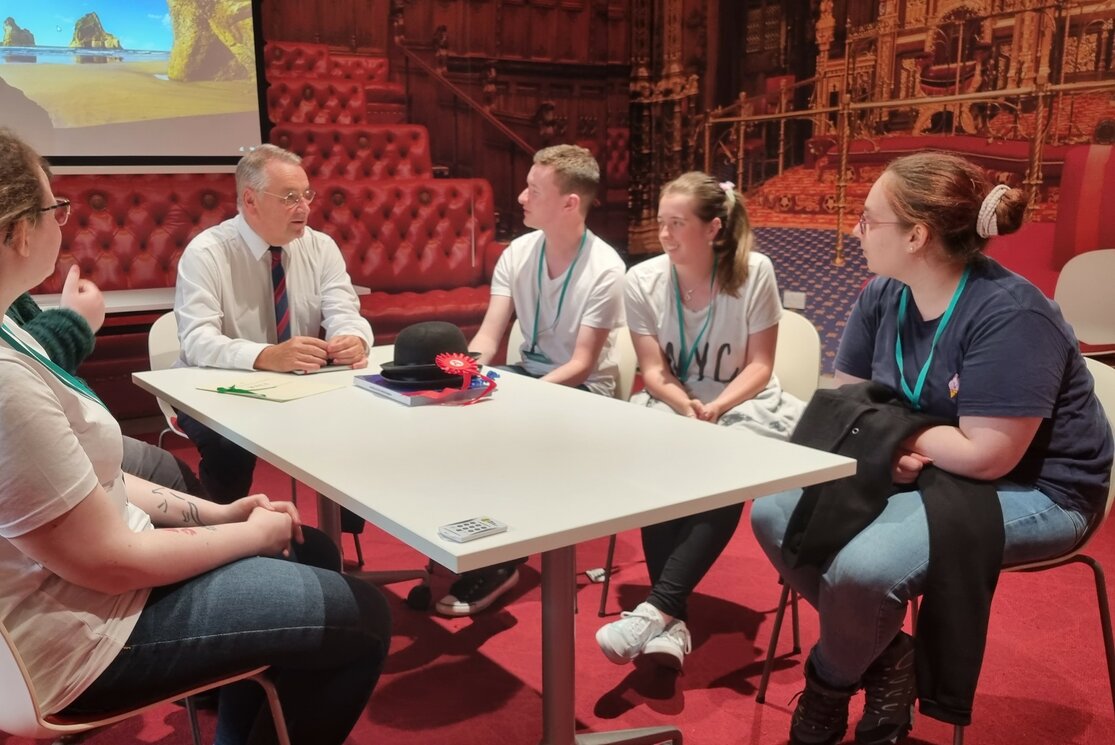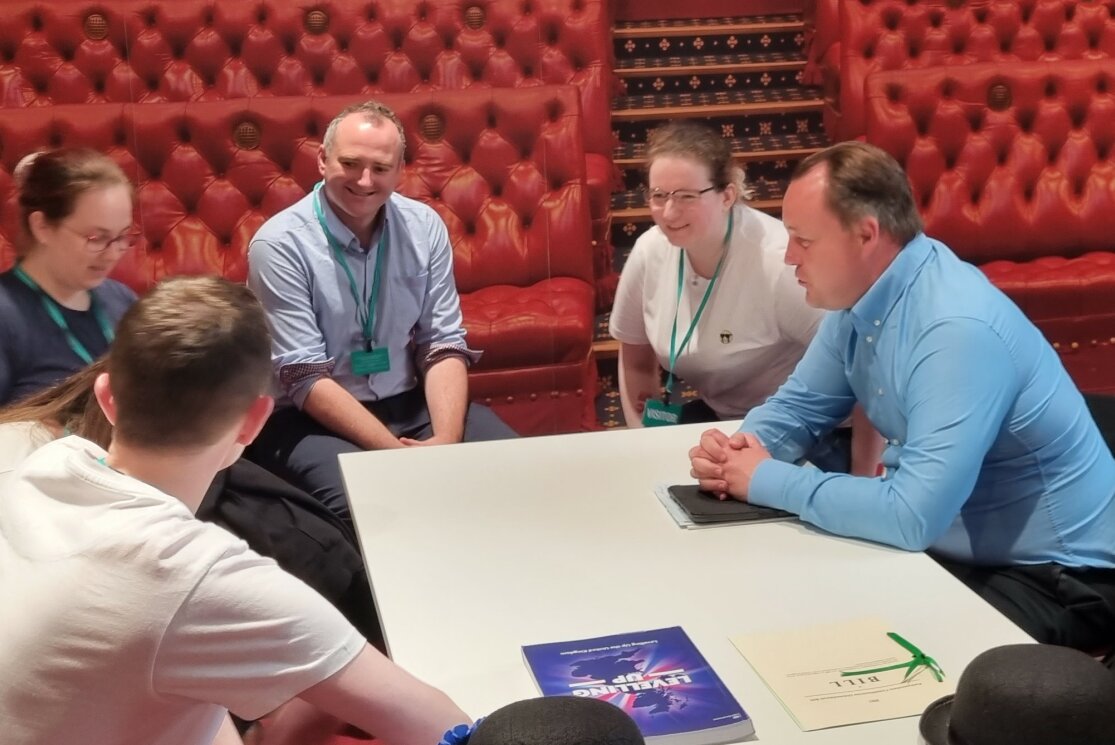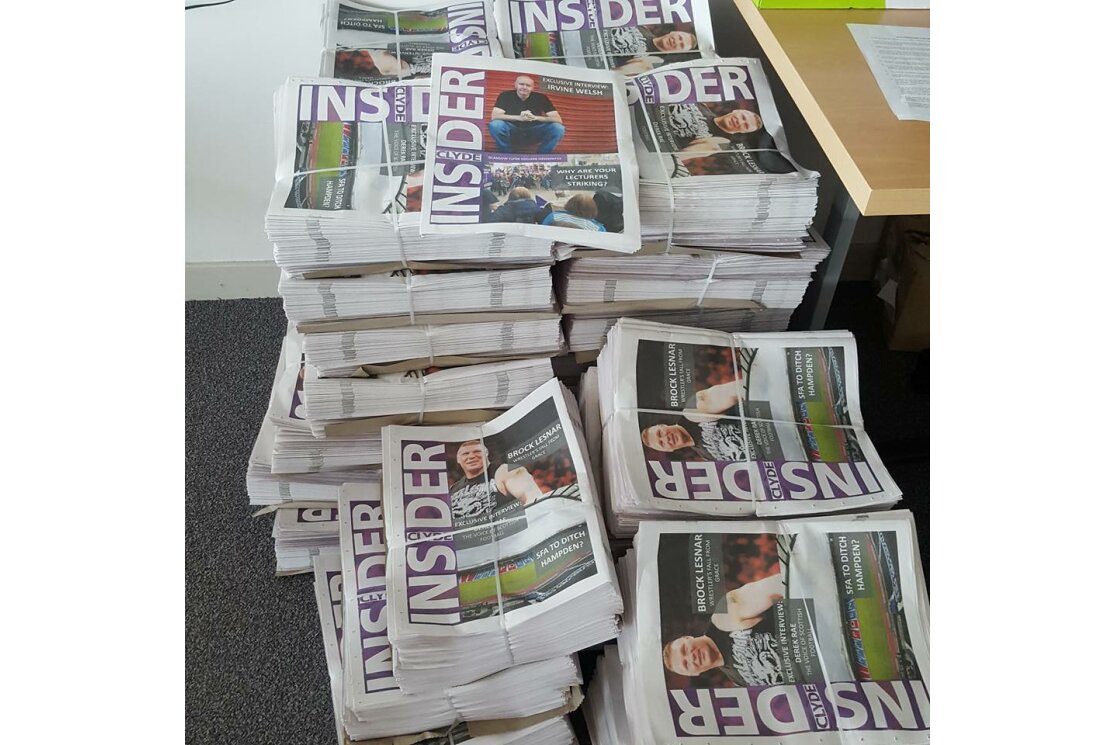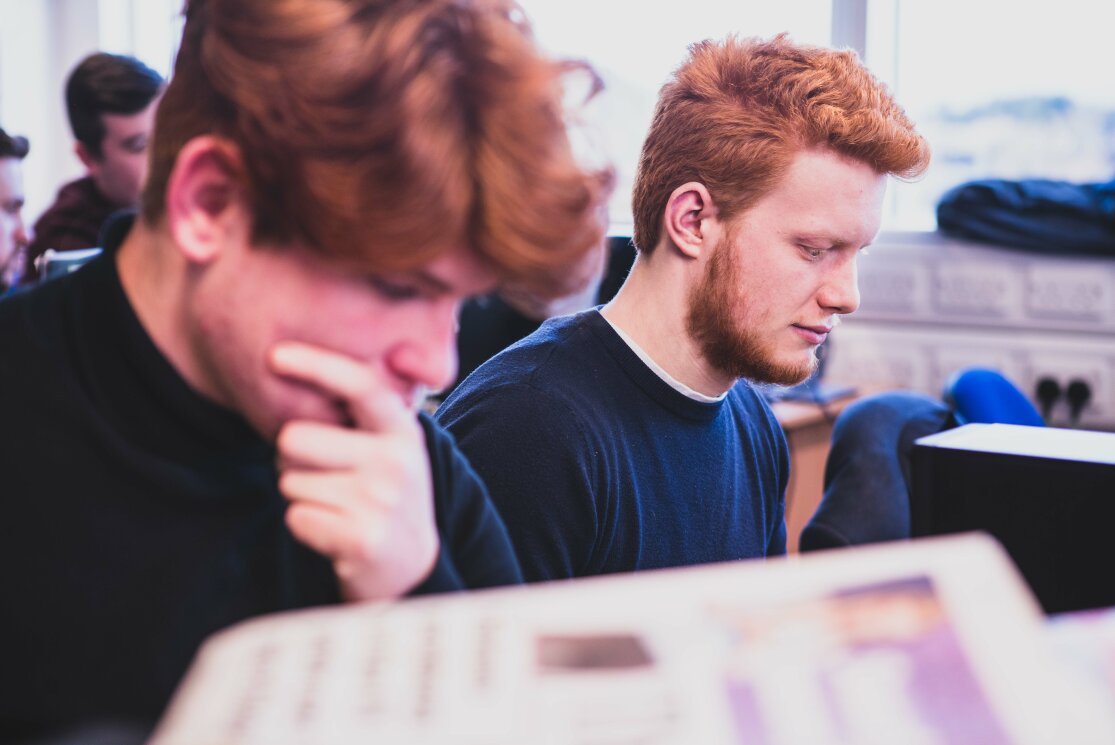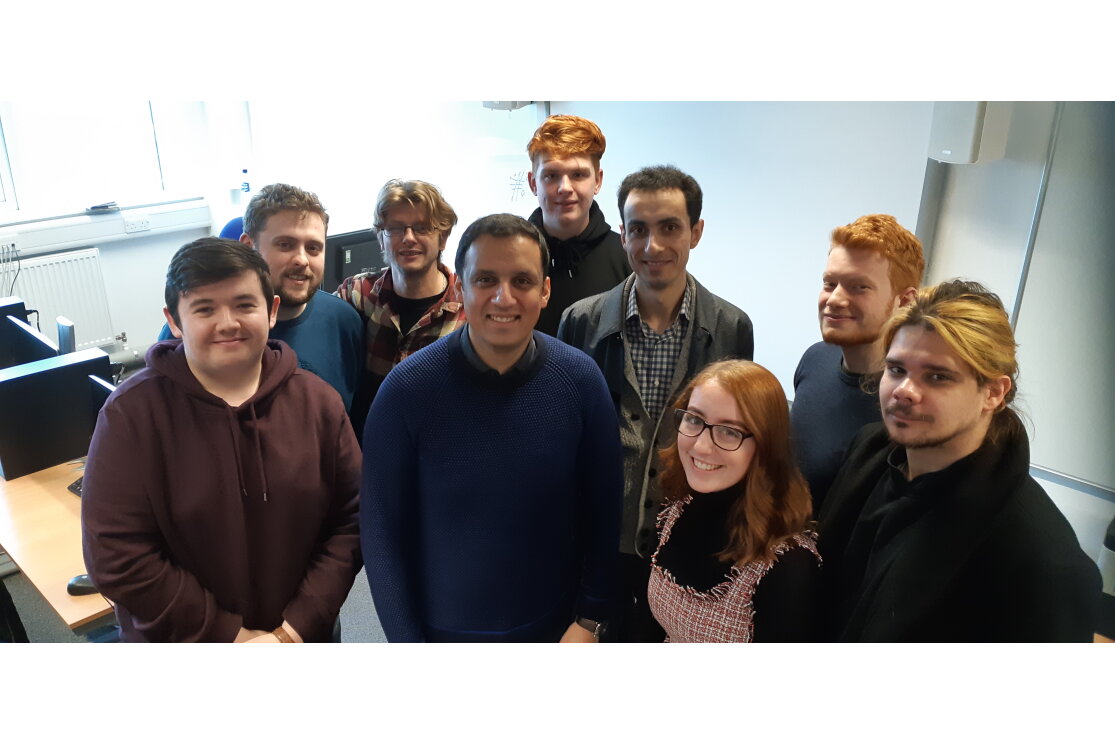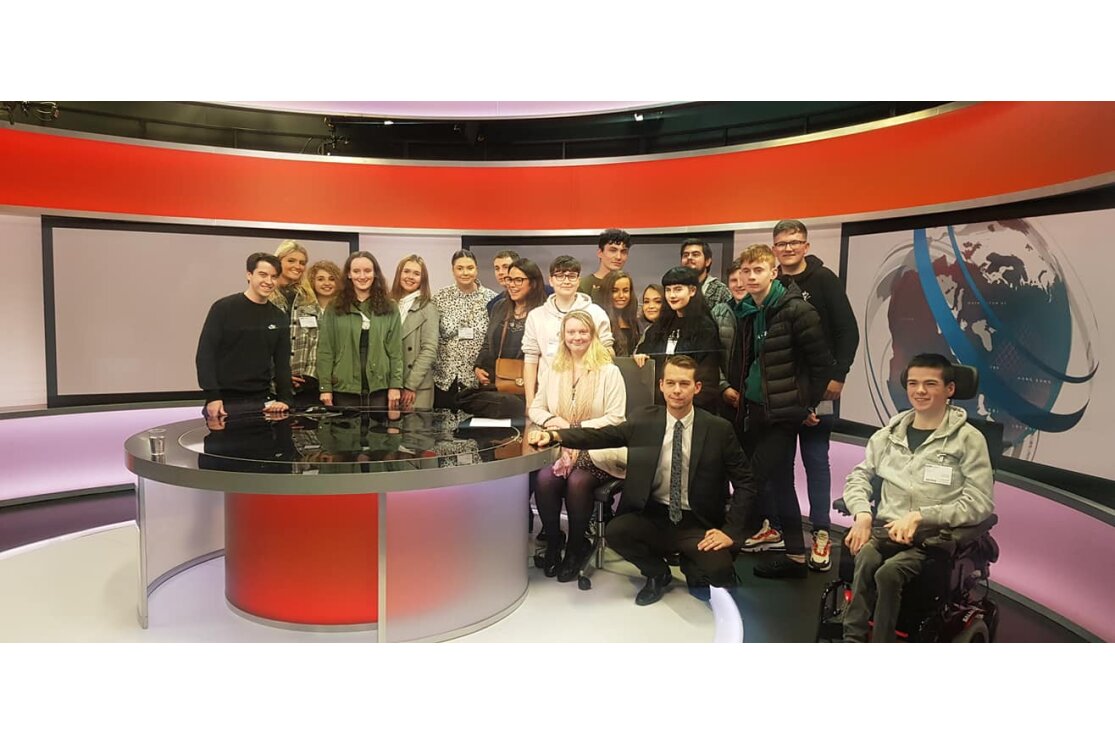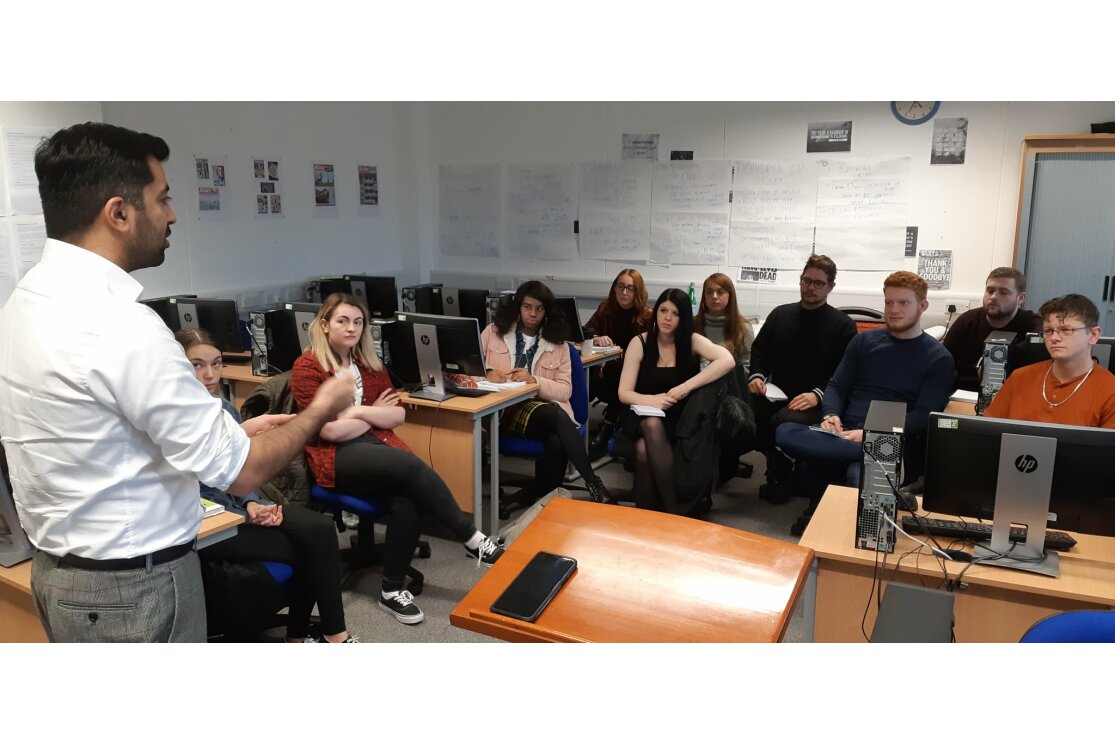HND Journalism and Content Production
- Location
- Cardonald Campus
- SCQF Level
- 8
- Start Date
- 24 Aug 2026
- Qualification Type
- HND
- Course Type
- Full-Time
- Duration
- 2 Years (August to June)
Whether you want to work in a newsroom or be a digital content creator, this HND Practical Journalism and Content Production course will give you the confidence, skills and versatility you need to thrive in the multimedia industry. You’ll get the chance to create copy for traditional news, magazines and online publications, zines and other digital lifestyle platforms as well as creating online video news packages. You’ll also learn how to create effective podcast and social media content, using them as a vehicle for storytelling and entertainment. All classes are delivered by lecturers who have worked in journalism or communications and understand this exciting, ever-changing industry.
What will I learn?
During this HND Journalism and Content Production course, you will cover a wide range of practical skills – from news writing to mobile journalism. The core focus of the course is on the practical skills that journalists and content producers need and editors or businesses demand.
All classes are delivered by staff who have worked in journalism or communications and are aware of the ever-changing requirements of this fast-paced industry.
Training on Scottish legal and political affairs is also provided which includes trips to Edinburgh and London.
- News writing
- Feature writing
- Digital journalism and content production (video platform content, data journalism and the use of social media to find and promote stories)
- Video recording and editing
- Podcast and radio production
- Public affairs
- Media law.
Students run the college’s newspaper, The Clyde Insider, which allows them to publish written stories as well as produce video content and podcasts. From the beginning of the course, students will be given an insight into how to produce digital material for this website.
The College has its own podcast studio where students can create their own podcast programmes. These can be shared across many external and internal platforms.
To read the latest course news, visit our X page via @GCC_Journalism.
From HND Journalism to working for the Glasgow Times, hear student Emily's journey.
See our latest Student Magazine - Clyde Connection
In 2025, our journalism students received two nominations at the Herald Student Press Awards (read here for more information - Journalism students shortlisted for Herald Student Press Awards | Glasgow Clyde College).
Our NCTJ student also was nominated for Scoop of the Year at the prestigious NCTJ Awards in April 2024 NCTJ Awards for Excellence 2024 results - National Council for the Training of Journalists.
Entry requirements (minimum)
- Higher English at C level or above
- If you do not have this qualification but can provide clear evidence of a commitment to journalism you will be considered for a place. This evidence includes studying a course such as NQ Media and Journalism Level 5. A portfolio of written material which demonstrates skills in written English. This may include articles or blog entries, along with any work which suggests an interest in journalism
- An interview and written exercise is part of the selection process for those who do not have the entry requirements at the moment
- For those holding HNC Practical Journalism, it may be possible to access year two of the HND. Please contact the Faculty directly for further information aclcardonald@glasgowclyde.ac.uk
- Diploma in Creative and Digital Media (SCQF level 7) (Modern Apprentice)
- Foundation Apprenticeship in Creative and Digital Media
Entry requirement equivalency table
If you do not meet the entry criteria for your chosen course, you may be offered an alternative course in the same subject area.
Employer and industry links
Students work alongside industry in a variety of ways:
- Guest speakers from the BBC, the Glasgow Times, the National and STV amongst other outlets
- A workshop at the Scottish Parliament where students have the opportunity to interview politicians and journalists
- Guest speakers from across the Scottish political spectrum with previous visits from the former First Minister Nicola Sturgeon and Scottish Labour leader Anas Sarwar. Read more about these visits here.
- A work placement in second year
- Trip to Westminster where you’ll experience a tour of the Houses of Parliament and speak to various politicians and political reporters and correspondents. Read about the trip in March 2024.
- Our students have been working with SPFL football clubs Clyde, Partick Thistle and Queen's Park gaining experience in their media teams working as match reporters and helping with social media content. Football speaks every language and Journalism, Media and TV Students Score Experience.
- Trip to the BBC Scotland studios and newsroom.
Articulation Routes
An articulation agreement is in place with Glasgow Caledonian University and the University of Stirling.
Entry to year three of the BA (Hons) Multimedia Journalism course at Glasgow Caledonian University will be dependent on:
- Satisfactory completion of the above HND
- Grades AB/BA from the Graded Units in first and second year
- Interview
- Portfolio review.
Entry to year two of the BA (Hons) Journalism Studies course at the University of Stirling will be dependent on:
- Satisfactory completion of the above HND
- Grade A in both the Graded Units from the HNC and HND years
- Interview
- Portfolio review.
Jobs and further study
Whether you want to become a journalist or create content working as a freelancer or for a company, this course will prepare you for these job roles.
Many of our learners are now either entering the journalism industry or moving into in-house roles where they are asked to write up news stories, blogs, create video content or produce promotional stories for internal communication purposes and social media. Previous students have found work with:
- BBC Scotland
- DC Thomson
- The Daily Record
- The Daily Express
- The Drum magazine
- Glasgow Live
- Glasgow World
- Newsquest Weekly papers
- Reach Plc local papers
- The Scottish Sun
- STV
Hear from Journalism alumni Darren McGarvey and Dani Gibson on what happened after they completed the course.
Students who have completed the HND have been successful in gaining entry into year three of the following courses:
- NCTJ diploma in journalism at Glasgow Clyde College (six-month fast-track)
- BA (Hons) Journalism / Journalism (Sport) at the University of the West of Scotland
- BA (Hons) Journalism at Edinburgh Napier University
Other successful students have progressed to the University of Glasgow and the University of Strathclyde.
Making an application
For courses starting in August, you can make up to two applications.
Applications are made to a course and a first choice of campus. If the course is oversubscribed at your first choice you will be automatically considered for alternative sites and may be made an offer without a further application.
I've applied — what happens next?
When you apply
You will receive an automated email confirming that we have received your application (remember to check your SPAM folder).
Your application will be reviewed by the admissions team and you will either be:
- Made a direct offer (unconditional or conditional)
- Invited to book an interview session - If you are invited to interview, you will be asked to complete a written test and news quiz.
- Advised that your application is unsuccessful – you have not met the entry requirements for this course and are advised to contact the College Student Advice Centres to discuss alternative options which may be available to you.
- We aim not to reject an application and if you don’t meet the entry requirements you may be referred to a different course or level.
If you are invited to interview, you will be informed of the outcome of your interview by email within 14 working days. The outcome will be one of the following:
- Unconditional offer of a place – you have met all the entry requirements and your place is guaranteed. You will be required to accept this offer to secure your place.
- Conditional offer of a place – your place is secured pending you meeting the entry requirements. This may mean achieving school or college qualifications which you may not be able to provide to us yet. You will be required to accept this offer to secure your conditional place. Once your conditions are met this will change to an unconditional offer of a place which you must accept before you can enrol on the course.
- Waiting list – you have met all entry requirements, and have been interviewed however, the course is now full so you have been placed on a waiting list. If any spaces become available you may be contacted, usually around the course start date. We would advise that you also consider other application options.
- Reserve list – following your interview, you have unfortunately not been successful in this round of recruitment. We have placed your name on a Reserve list and your application may be reconsidered at a later date. This could happen any time up to the start date of the course but it is very possible that you will not be offered a place. We would advise that you also consider other application options.
- Unsuccessful – your interview has been unsuccessful. You may be offered a place on a course at a different level, or advised to contact the College Student Advice Centres to discuss alternative options which may be available to you.
Once an offer is received, you must reply within 14 working days or risk losing your place, as the system will automatically decline your offer after 14 days.
Once you have accepted your offer, you will be sent out instructions about student funding, joining instructions and induction date.

